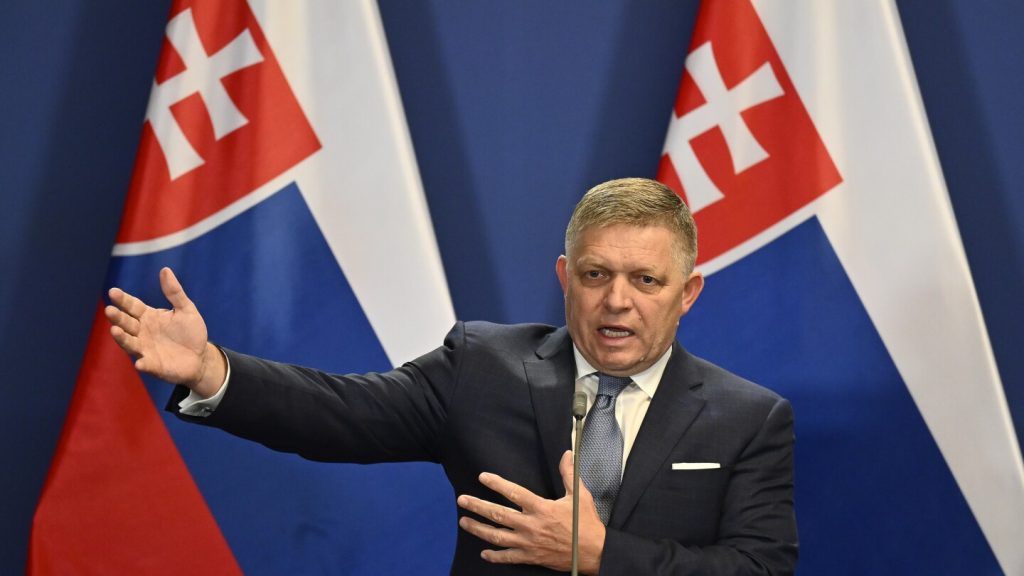Slovakian Prime Minister Robert Fico is in critical condition after being shot at a political event, highlighting the violent turn in his long political career. Fico, a former member of the Communist Party, has served multiple terms as prime minister since his election to parliament in 1992. His party, Smer (Direction), has been described as left-populist, though Fico has been compared to right-wing leaders like Hungary’s Viktor Orbán.
Fico’s return to power last year came with a shift towards pro-Russian and anti-American policies, including halting arms deliveries to Ukraine in the midst of its conflict with Russia. This move sparked protests across Slovakia against his government’s tilt towards Moscow and other controversial measures, such as attempts to amend the penal code and control public media. Critics feared that Fico’s leadership would lead Slovakia away from its pro-Western stance.
The prime minister’s tenure has been marked by corruption scandals, tirades against journalists, and criminal charges for alleged misconduct. In 2018, Fico’s government resigned following the murder of investigative journalist Ján Kuciak, who was reporting on corruption involving high-level politicians. Fico has also been known for his anti-migration and anti-LGBTQ+ positions, as well as his vows to pursue a “sovereign” foreign policy.
Fico’s shooting comes at a time of heightened political tension in Slovakia, with concerns about the direction of the country under his leadership. The incident has raised questions about the safety of politicians in the region and the potential for further violence in the political arena. Fico, who is currently hospitalized in critical condition, faces an uncertain future as his country grapples with the aftermath of this shocking event.
As Slovakia waits for updates on Fico’s condition, the political landscape remains uncertain, with implications for the country’s domestic policies and international relations. The shooting of a sitting prime minister underscores the volatility of politics in the region and the challenges facing leaders who navigate complex geopolitical dynamics. Fico’s legacy is now intertwined with the violent episode that has placed him in life-threatening condition, raising concerns and questions about the future of Slovakia’s leadership.
The aftermath of the shooting will likely reverberate across Slovakia and beyond, shaping the political discourse and actions in the country. Fico’s controversial policies and leadership style have been sources of division within the country, and his shooting has further polarized public opinion. As the nation grapples with the consequences of this traumatic event, the future of Slovakian politics hangs in the balance, with implications for the country’s stability and direction in the coming months and years.


